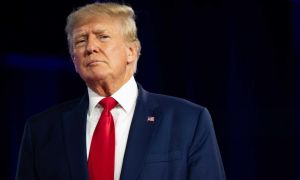On February 1, 2025, hundreds of students marching from Belgrade to Novi Sad began to block three key bridges over the Danube River as part of their protest against corruption they blame for the tragic building collapse on November 1, 2024, which claimed 15 lives. Their two-day, 80-kilometer (50-mile) trek was met with rousing support from fellow students and local residents who lined the route to greet them with cheers and gestures of solidarity.
The atmosphere was electric as the students entered Novi Sad, marked by the symbolic laying of a small red carpet on one of the bridges they crossed. This blockade not only highlights their demands for accountability but also serves as a memorial for the victims of the building tragedy and reflects the students' determination to challenge the status quo.
Initially sparked by outrage over suspected corruption affecting construction contracts, this movement has rapidly evolved to become the most significant challenge to Serbian President Aleksandar Vucic's populist government. The tragedy at the Novi Sad railway station, attributed to graft, has ignited widespread calls for reforms and accountability.
Accompanying the student march were wreaths bearing the names of the 15 victims as they made their way to the collapsed site on Friday evening, paying homage and seeking justice. Many students expressed their grief and anger as they reflected on the accident, saying the need for change has never been more urgent. Nevena Vecerinac, one of the students participating, stated, "We will make it to Novi Sad. Yesterday’s walk was easy. It’s cold now, but we can make it. We all have the same goal." This determination was echoed by Luka Arsenovic, who emphasized, "We need support from all people. With this energy and mood I hope we can do it, otherwise there will be no brighter future.”
The protest turned violent earlier on the same day when, during the 15 minutes of silence observed for the victims, a driver rammed his vehicle through the crowd participating in another anti-corruption demonstration in Belgrade, injuring two women. This incident, similar to two previous attacks on protesters, has heightened the fears surrounding the movement. Dr. Elena Matkovic, who witnessed the incident, described the shock of the encounter, saying, "We really did not expect him to drive through a crowd of people. If you are asking me whether we will stop (the blockades), we most certainly will not. This is not the moment to stop."
The students’ protests have not gone unnoticed. The recent momentum has led to significant political fallout, including the resignation of Prime Minister Milos Vucevic amid mounting public pressure and discontent. Despite these concessions, protesters have remained unsatisfied, arguing the government's response has not been sufficient to address the systemic issues of corruption and negligence seen throughout the country.
President Vucic has shifted his rhetoric as the protests gained traction, at times accusing demonstrators of working with foreign powers to destabilize his government. Yet, he has also started to announce willingness for dialogue with the students. During his recent remarks, he stated, "It is clear the country is under attack both from the outside and from the inside. We will know how to fight, we will be flexible, we will seek conversation and dialogue (with the protesters), but we will know how to save the country."
The determination shown by the students and supporters during this historic moment of civil disobedience has taken many by surprise, especially considering the number of young people who have left Serbia seeking opportunities abroad. Their call for accountability and reform is not just about one tragedy but reflects deep-seated frustrations with corruption and the quest for justice.
This protest signifies not just a stand against the greed and negligence surrounding the collapsed building but also the collective yearning for a brighter future rooted in transparency and fairness. The outcome of this struggle could shape the political future of Serbia and the engagement of its youth with governance.
The streets of Novi Sad and beyond will echo with the voices of students demanding change, and as they prepare for the climax of their protests this weekend, the nation watches closely.



